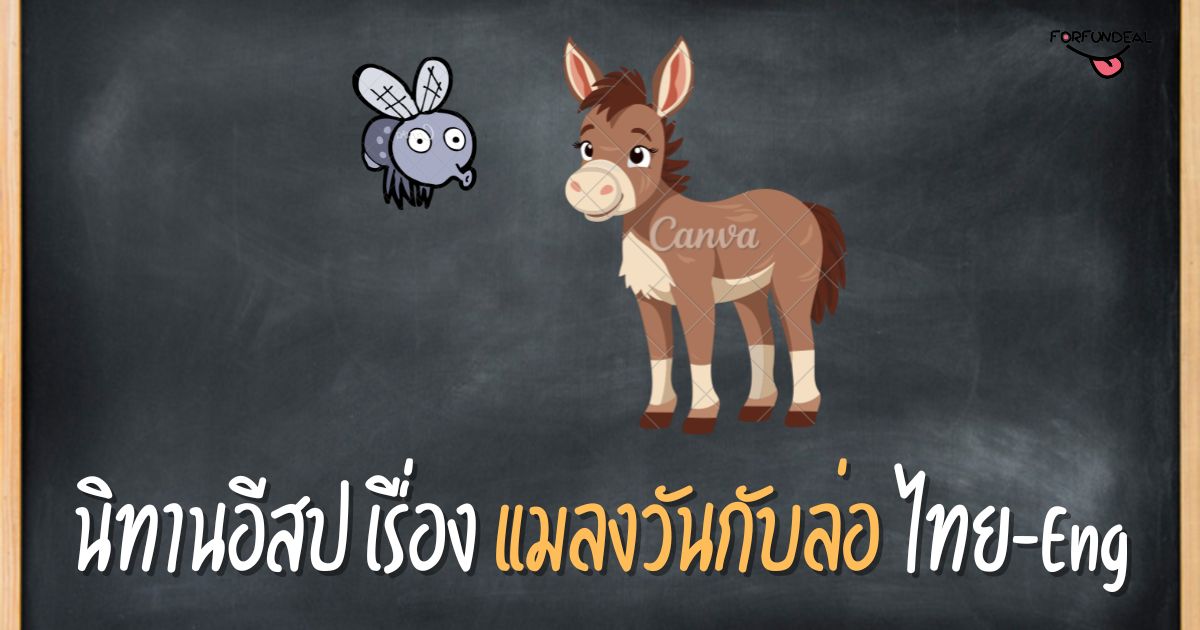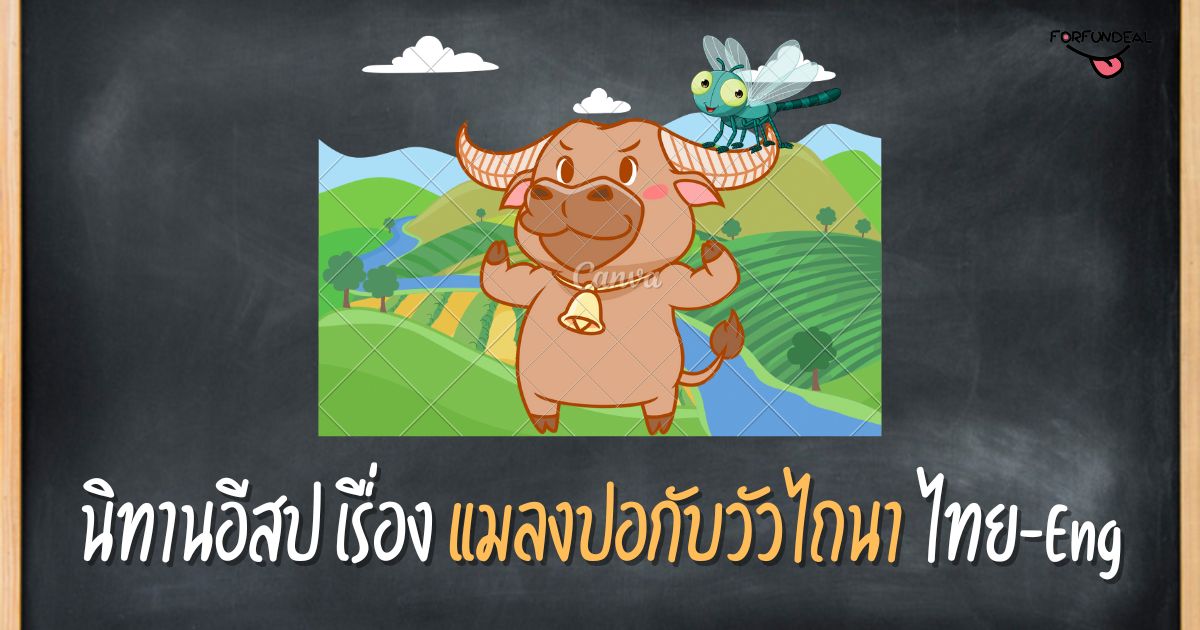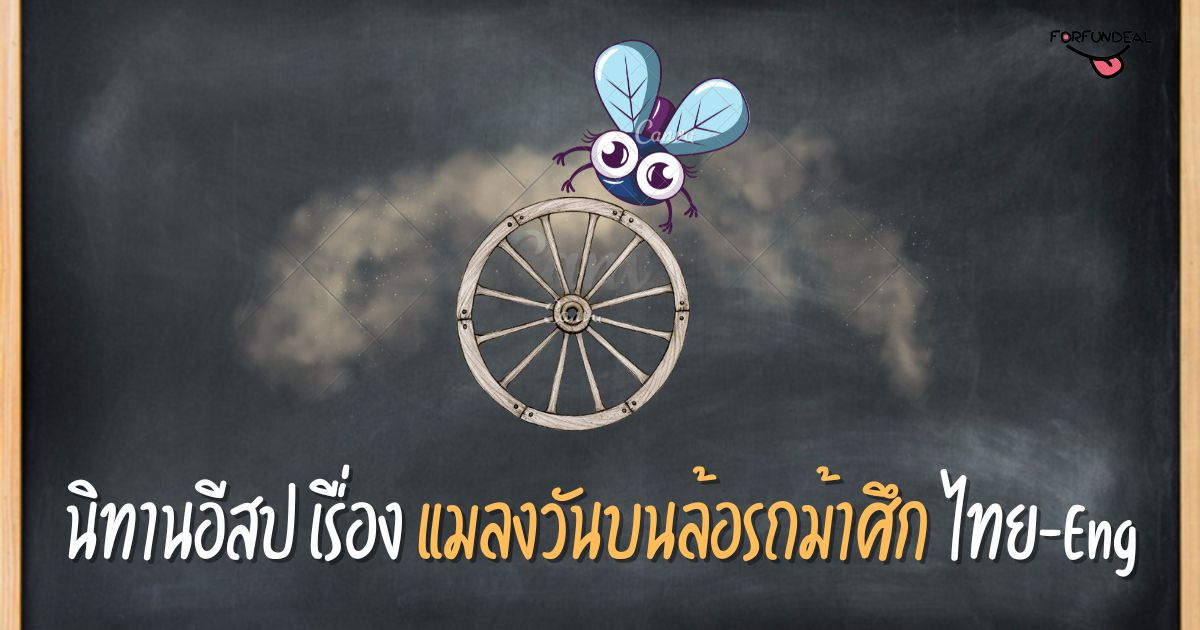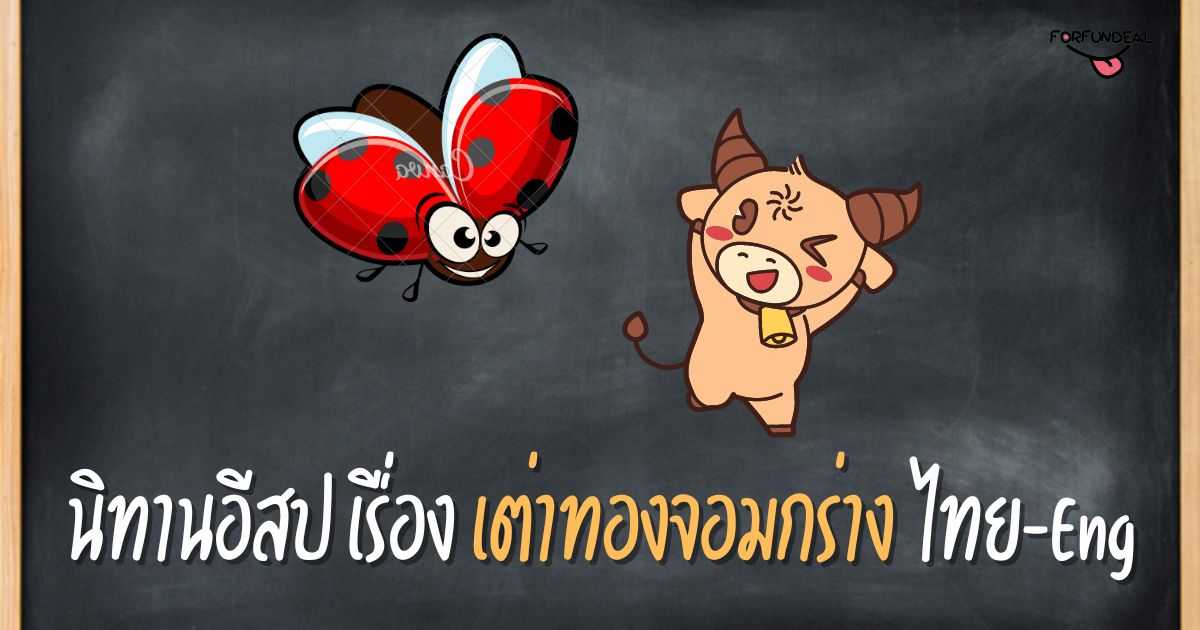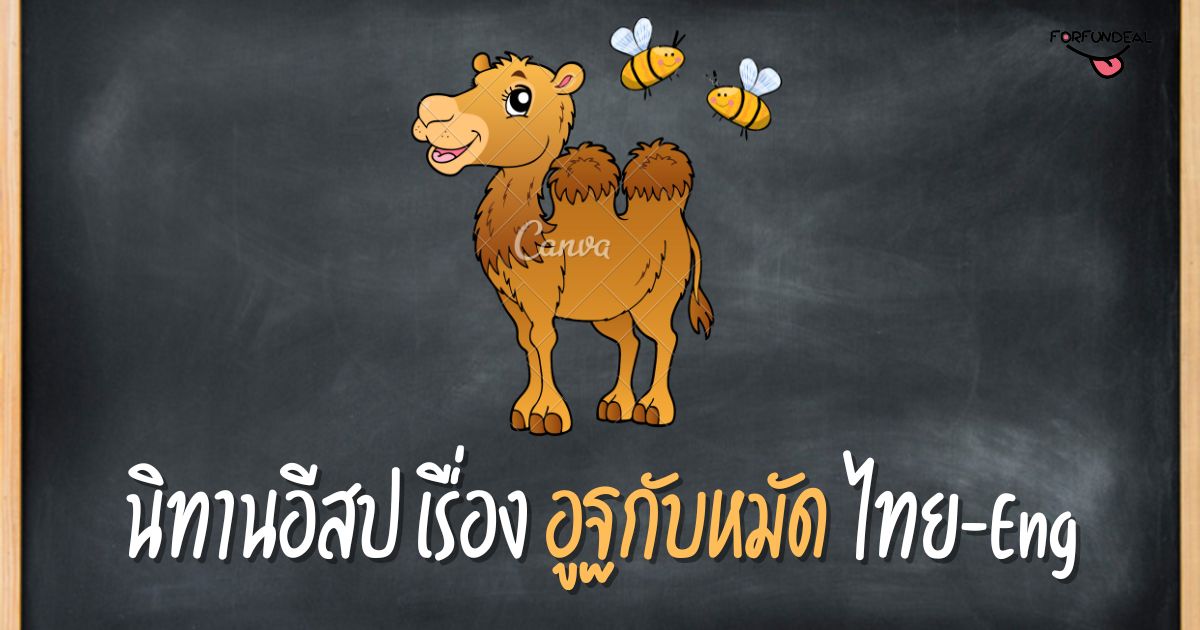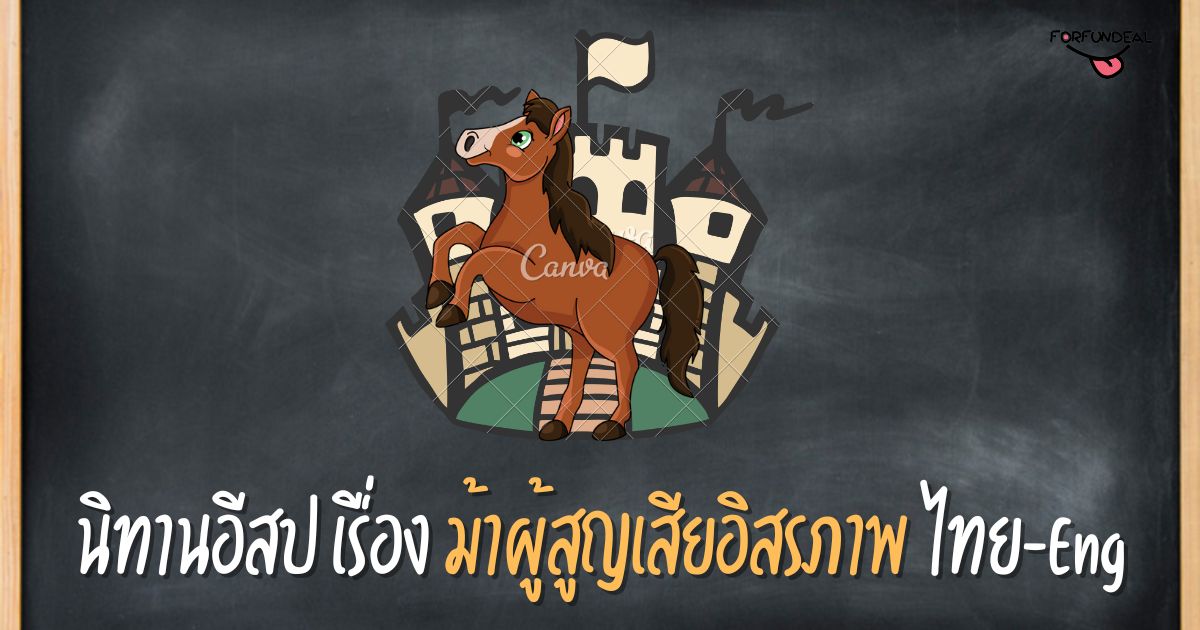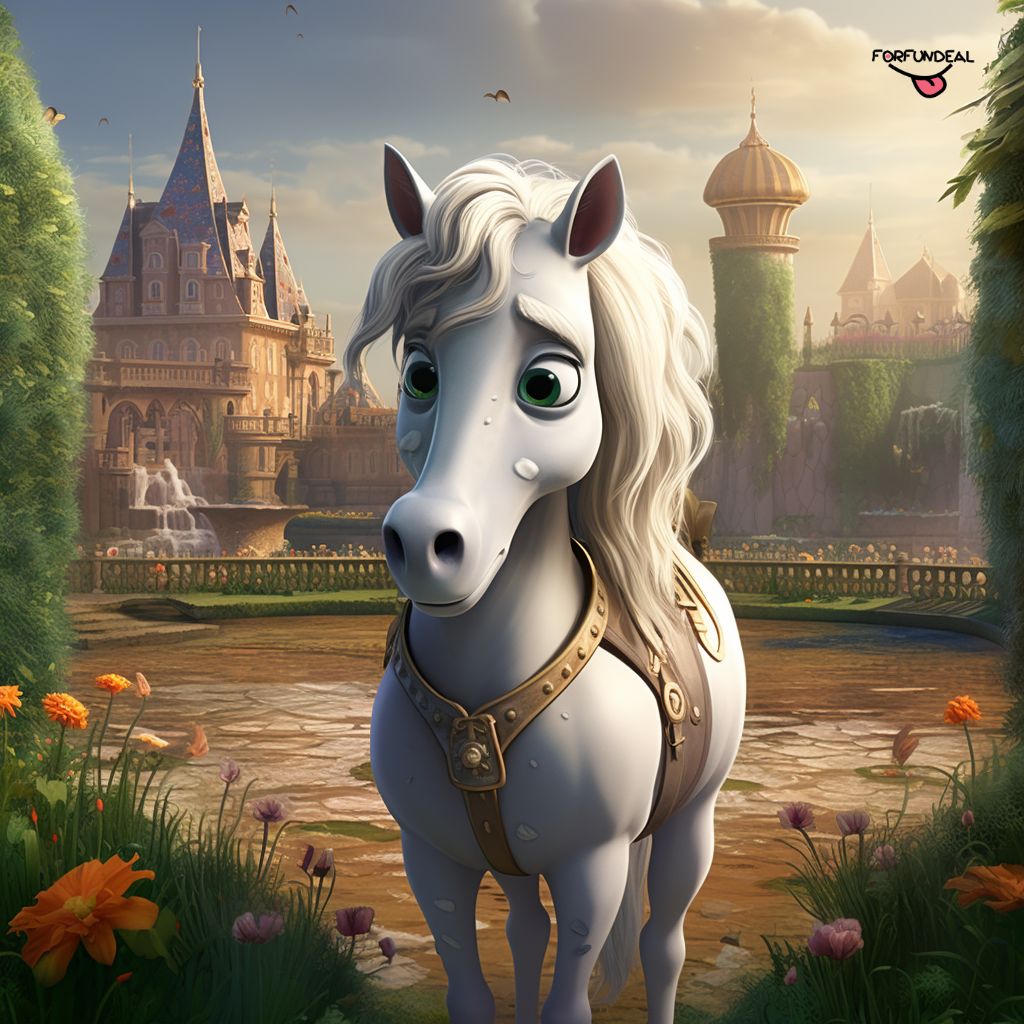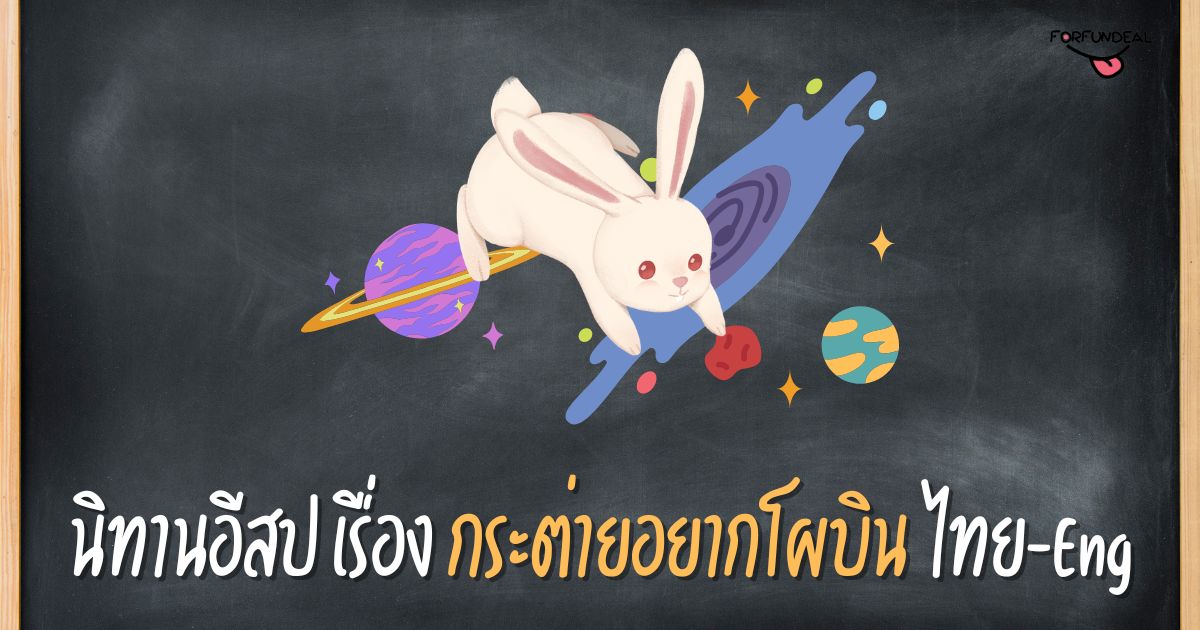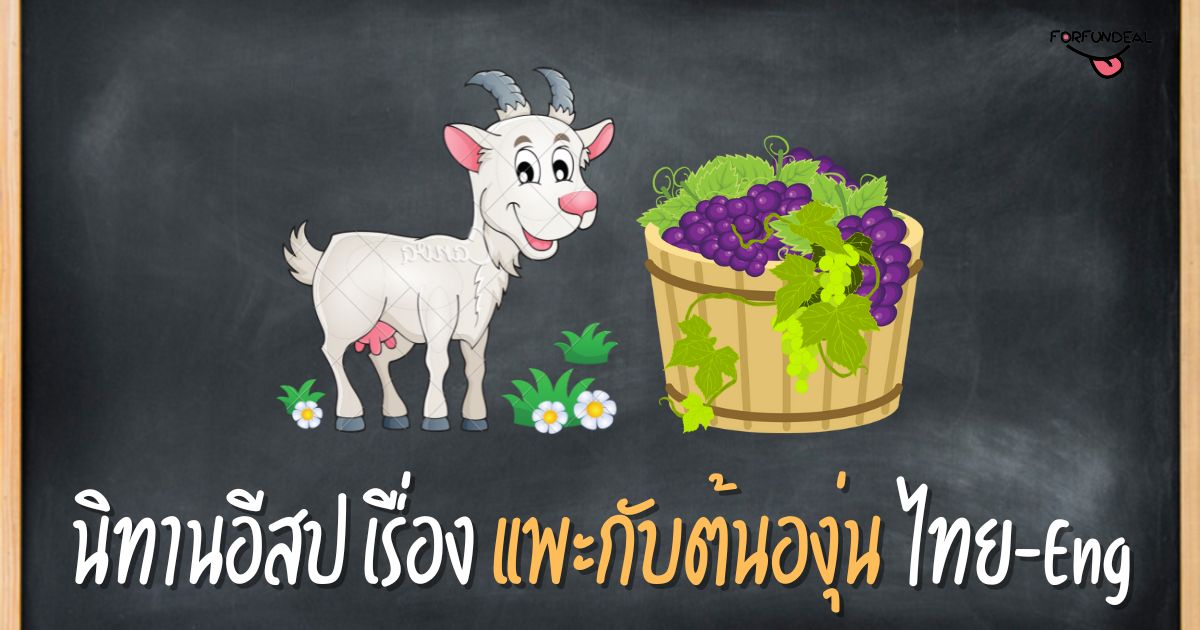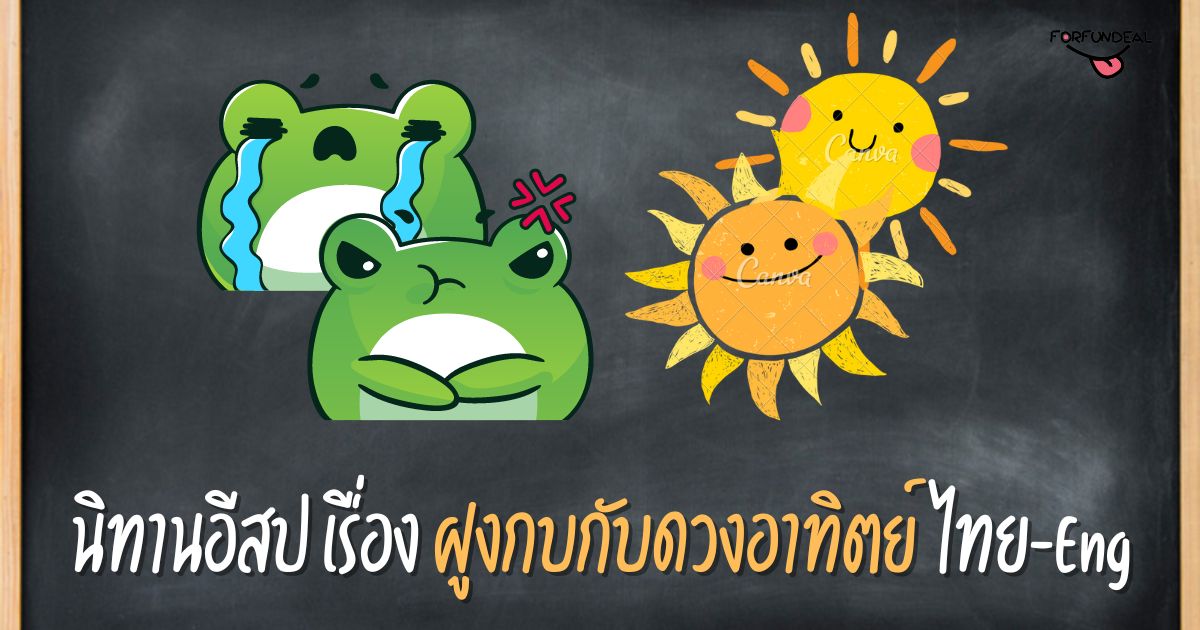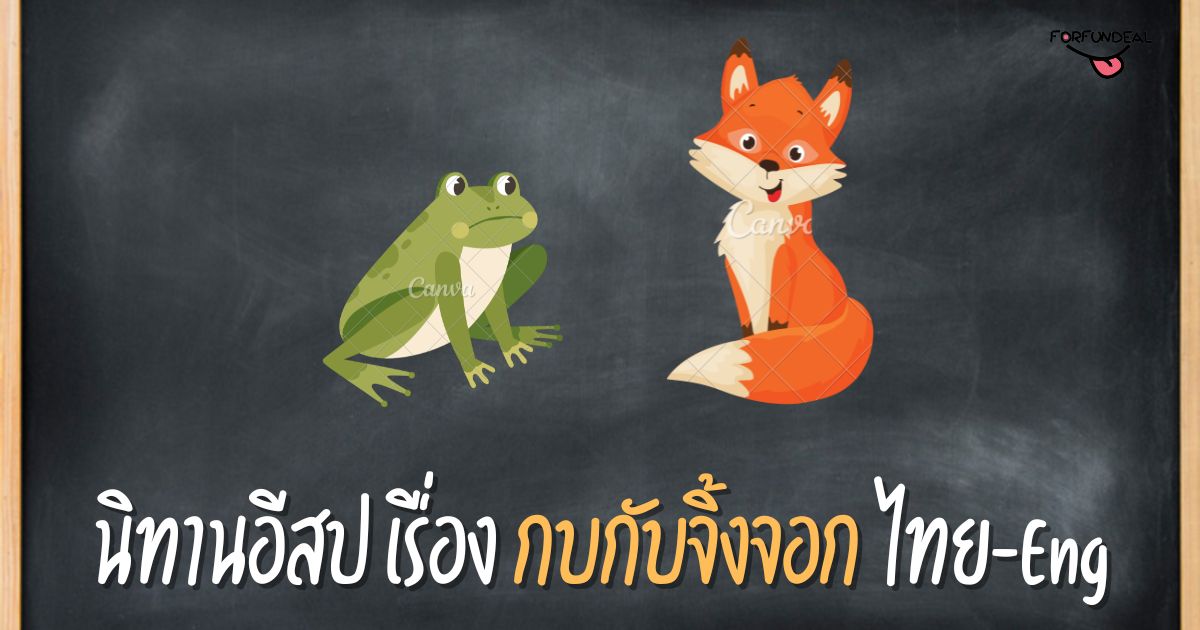“แมลงวันกับล่อ” เป็นนิทานอีสปที่สอนเราถึงความสำคัญของความอ่อนน้อมถ่อมตน ความสามารถ และการหลีกเลี่ยงการแทรกแซงโดยไม่จำเป็นในพื้นที่ที่เราขาดความเชี่ยวชาญ
นิทานอีสปเรื่องแมลงวันกับล่อ
ในหมู่บ้านที่มีชีวิตชีวา ล่อที่ขยันหมั่นเพียรไปทำงาน แบกของหนัก และช่วยงานต่างๆ วันหนึ่ง มีแมลงวันตัวหนึ่งบินวนเวียนอยู่รอบๆ ล่อ ราวกับว่ามันมีบทบาทสำคัญ ล่อรู้สึกงุนงงกับพฤติกรรมของแมลงวันจึงถามว่า “ทำไมเจ้าถึงมาโฉบรอบตัวข้า ราวกับว่าเจ้ามีภารกิจสำคัญ”
Once upon a time, In a lively village, a diligent mule went about its work, carrying heavy loads and helping with various tasks. One day, a self-assured fly buzzed around the mule, acting as if it had a vital role to play. The mule, puzzled by the fly’s behavior, asked, “Why do you hover around me as if you have important tasks?”
ด้วยบรรยากาศที่มีความสำคัญ แมลงวันจึงตอบว่า “ข้ากำลังดูแลและกำกับล่อ เพื่อให้แน่ใจว่าทุกอย่างเป็นระเบียบและอยู่ภายใต้การควบคุม”
With an air of importance, the fly replied, “I am overseeing and directing, ensuring that everything is in order and under control.”
เจ้าล่อรู้สึกขบขันเล็กน้อย และยังคงทำงานต่อในขณะที่แมลงวันยังคงส่งเสียงหึ่งๆ สร้างความปั่นป่วนโดยไม่จำเป็น เมื่อสังเกตสิ่งนี้ ชาวบ้านก็หัวเราะกับพฤติกรรมของแมลงวัน โดยตระหนักว่ามันกำลังเข้าไปยุ่งกับเรื่องที่มันไม่รู้อะไรเลย
The mule, slightly amused, continued its work while the fly continued to buzz around, creating an unnecessary commotion. Observing this, the villagers chuckled at the fly’s antics, realizing that it was meddling in affairs it knew nothing about.
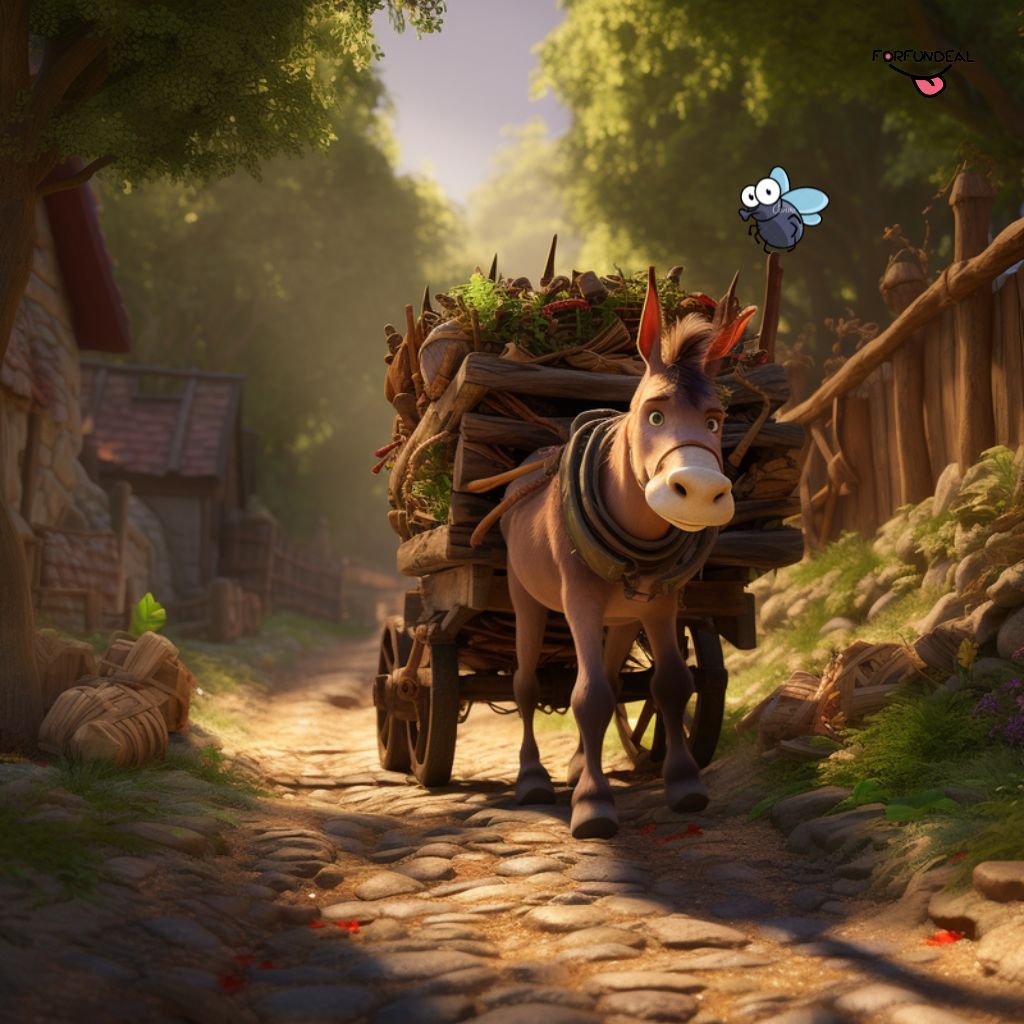
นิทานเรื่องนี้สอนให้รู้ว่า
“ผู้รู้ย่อมไม่พูด ผู้ไม่รู้ย่อมพูด…”
- ความอ่อนน้อมถ่อมตนและความสามารถ: เรื่องราวเน้นย้ำถึงความสำคัญของการอ่อนน้อมถ่อมตนและมีความสามารถในบทบาทที่เรารับ แทนที่จะแสดงอย่างเอาแต่ใจ
- การหลีกเลี่ยงการก้าวก่าย: เราเรียนรู้ที่จะหลีกเลี่ยงการก้าวก่ายในด้านที่เรายังขาดความเชี่ยวชาญ เนื่องจากอาจนำไปสู่ความสับสนและความไร้ประสิทธิภาพได้
- การตระหนักถึงคุณค่าที่แท้จริง: การทำความเข้าใจทักษะและการมีส่วนร่วมที่แท้จริงของเราจะทำให้เราไม่สามารถประเมินความสำคัญของเราสูงเกินไปและมีส่วนร่วมอย่างมีความหมายได้
- ปล่อยให้ความสามารถเปล่งประกาย: ความสามารถพูดเพื่อตัวมันเอง ไม่จำเป็นต้องมีการแสดงที่ไม่จำเป็นหรือพยายามทำให้ดูมีความสำคัญมากกว่าที่เราเป็น
- การเคารพบทบาทของผู้อื่น: นิทานสอนให้เราเคารพบทบาทของผู้อื่น และไม่ก้าวก่ายหรือก้าวก่ายในพื้นที่ที่ไม่จำเป็นต้องแสดงตัวของเรา
- มุ่งเน้นไปที่การมีส่วนร่วมที่มีความหมาย: การมีส่วนร่วมในงานที่สอดคล้องกับทักษะและความรู้ของเราช่วยให้เราสามารถมีส่วนร่วมที่มีความหมายโดยไม่ทำให้เกิดการหยุดชะงักโดยไม่จำเป็น
“Those who know do not speak Those who do not know speak…”
- Humility and Competence: The story emphasizes the importance of being humble and competent in the roles we take on, rather than acting with an overbearing air.
- Avoiding Meddling: We learn to avoid meddling in areas where our expertise is lacking, as it can lead to confusion and inefficiency.
- Recognizing True Value: Understanding our true skills and contributions prevents us from overestimating our importance and contributing meaningfully.
- Letting Competence Shine: Competence speaks for itself; there’s no need for unnecessary showmanship or attempts to appear more significant than we are.
- Respecting Others’ Roles: The tale teaches us to respect others’ roles and not intrude or interfere in areas where our presence is unnecessary.
- Focus on Meaningful Contributions: Engaging in tasks that align with our skills and knowledge allows us to make meaningful contributions without creating unnecessary disruptions.
โดยสรุปแล้วนิทานเรื่องนี้เตือนเราถึงคุณค่าของความอ่อนน้อมถ่อมตน ความสามารถ และการเคารพข้อจำกัดของเราเมื่อมีส่วนร่วมในงานต่างๆ โดยเตือนไม่ให้แสดงความมั่นใจมากเกินไปในด้านที่เรายังขาดความเชี่ยวชาญและสนับสนุนให้เรามุ่งเน้นไปที่สิ่งที่เราเข้าใจอย่างแท้จริงและสามารถมีส่วนร่วมได้อย่างมีประสิทธิภาพ

